INTERVIEW 01
Engineers sound off
on their love for music
and the listening experience
INTERVIEW 02
The Best Place to Listen
to Music is In Your Car
INTERVIEW 03
Diverse ways to enjoy music
means new challenges
in the marketplace
INTERVIEW 04
Passion for Developing
Premium Car Stereos
INTERVIEW 05
Channeling the love of music
into the new AV receiver
Passion for Developing Premium Car Stereos
Q: When making a car stereo system, what kind of benefits can be gained by making adjustments to the PCB unit and parts?
Yoshinari:
By tweaking the PCB unit and parts, you can make massive improvements to a stereo's sound quality. Our company has a special studio where we conduct listening tests of our AV receivers utilizing our most high-end speaker called TAD. This listening test is conducted by Sound Meisters, who have passed a special Pioneer Listening Certification program, which tests the listening ability for even the most subtle of sound differences in an effort to improve our products.
I am also one of the Sound Meisters.
Q: What exactly is being tested at the Pioneer Listening Certification?
Yoshinari:
There is a sound interval unit called the 'cent' which is smaller than hertz. The engineers are tested to see if these incredibly minute changes at the cent level can be detected using compressed and uncompressed sound. These Pioneer Certified Sound Meister were involved in the fine-tuning of the new AV receiver. We made adjustments to the PCB unit and other parts and we were able to prove what we already suspected—that even slight changes can make a huge difference.
Q: So your standards are really quite exacting. I would think the average person wouldn’t realize how much work goes into making a quality piece of equipment.
Tsushima:
Even for people in my line of work, the world of audio equipment development is a total mystery. I have nothing but respect for the people who do that kind of work. We might be able to pull off a simple modification of our gear, but there's no way we could do what they do - building these devices from the ground up. We are able to make music based on their efforts and so in a way we're closely linked together.
Q: Music connects us all, right?
Tsushima:
I think that it's the same for even the most casual music listener. They and everyone should be aware of the amazing technology built into these devices that lets us play CDs with the press of a button, or allows us to listen to music on our phones anywhere, and at anytime. I also think it's very important to know what kind of sound quality will result from using different sorts of equipment.
Q: So when you start to focus on audio quality, it affects how you listen to music?
Tsushima:
Of course, some music fans pick their favorite music based on vocals, melody, or lyrics, and those aspects are the most important parts of music to them, but I think that if they discover the importance of sound quality, they'll find themselves enjoying their favorite artists even more. With the right listening setup, and the right playback device, you'll hear sounds and music that you never picked up on before. I think an experience like that can bring your love of music to a whole new level.
Q: As someone who makes music, what's it like learning about the exacting standards of audio product development?
Tsushima:
It's simply amazing to think about how every coil, every dab of solder in each piece of equipment, is placed so precisely, and for the specific purpose of transmitting music at the highest quality.
Q: Any production process is sure to have budgetary and schedule limitations. What are your priorities in terms of the finished product and sound quality?
Yoshinari:
I personally feel that the most importantly, if you exceed expectations, people can be truly moved. If you can’t do that — push those limits of what people think is possible, the whole endeavor is meaningless. When customers hear the Pioneer difference, they can’t help but yell out in surprise and nothing makes us happier than when that happens. We want them to be so completely amazed by how good the sound is that they are actually overcome with emotion. Pioneer has a philosophy that informs everything we make, "Move the Heart and Touch the Soul".
Tsushima:
That's important even for a small company like mine with less than 10 employees. Because we are small, we try not to focus on tight schedules. We wait until we have all the right songs and only then do we set a release date. Larger companies set their release dates first and then start telling the artists to make the songs by then.
Q: But not Origami Production.
Tsushima:
Exactly. It's not a common approach, but it ensures that the artists have the time they need to work on their songs until they're satisfied with them.
Q: Sounds like an ideal environment for making quality music.
Tsushima:
Well, on the other hand, the budgets for creating albums are much tighter for a small company like us. Compared to the bigger, high budget projects of large companies, we don't have the same freedom. Any time you want to make something and put it out there in the world, you always have to think about how to balance your schedule with your costs. That's true for any company, or even households, I'm sure. That being said, here we are. Pioneer has made this excellent equipment and, for us, just being able to be involved has been such an incredible experience.
Q: Mr. Yoshinari, does your past experience with creating music provide any advantages in your current job?
Yoshinari:
Absolutely. It's a major advantage. Since I know how artists think, I can understand how great it feels when you can suddenly hear a sound in a track that was undetectable before.Of course, they might not be the main sounds the artists were trying to emphasize, but they do want those sounds to be heard as part of the song experience. Oddly enough, those sounds important to artists might easily disappear based on our designs. That goes with the territory of this job though. An inexperienced designer worrying about budgets and schedules might end up removing the things that artists care about.
Q: So this desire to preserve those sounds comes from your own experience as a musician?
Yoshinari:
Definitely true, but it's more than just that. I've had about six years of work experience making music and CDs, mixing and mastering albums, and working on pickup mechanisms that control how a CD spins, the lasers that read them, and servo data. I've also been involved in the development of that data into products that output music. As a result, I'm really committed to the pursuit of quality sound production. No matter how tight the budget or the schedule is, I'm always thinking about the artist and I work hard to make sure their intentions are strongly reflected in the finished product.
Tsushima:
It's surprising just how many different kinds of work are involved in music creation. I don't think you'll find too many people who can do everything from making the music to building the devices it's played on. Using equipment developed by people with that range of experience really inspires confidence in the finished product because we know that they understand exactly what we need.
to be continued Vol.5
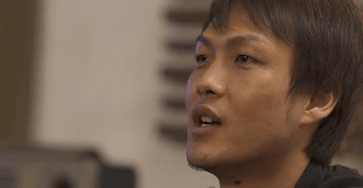
VOl.01
Engineers sound off on their love
for music and the listening experience
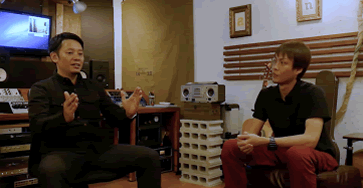
VOl.02
The Best Place to Listen to Music is In Your Car
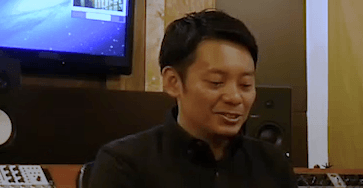
VOl.03
Diverse ways to enjoy music means new challenges in the marketplace
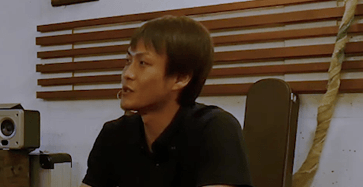
VOl.04
Passion for Developing Premium Car Stereos
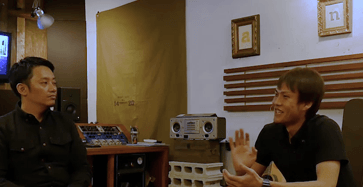
VOl.05
Channeling the love of music into the new AV receiver